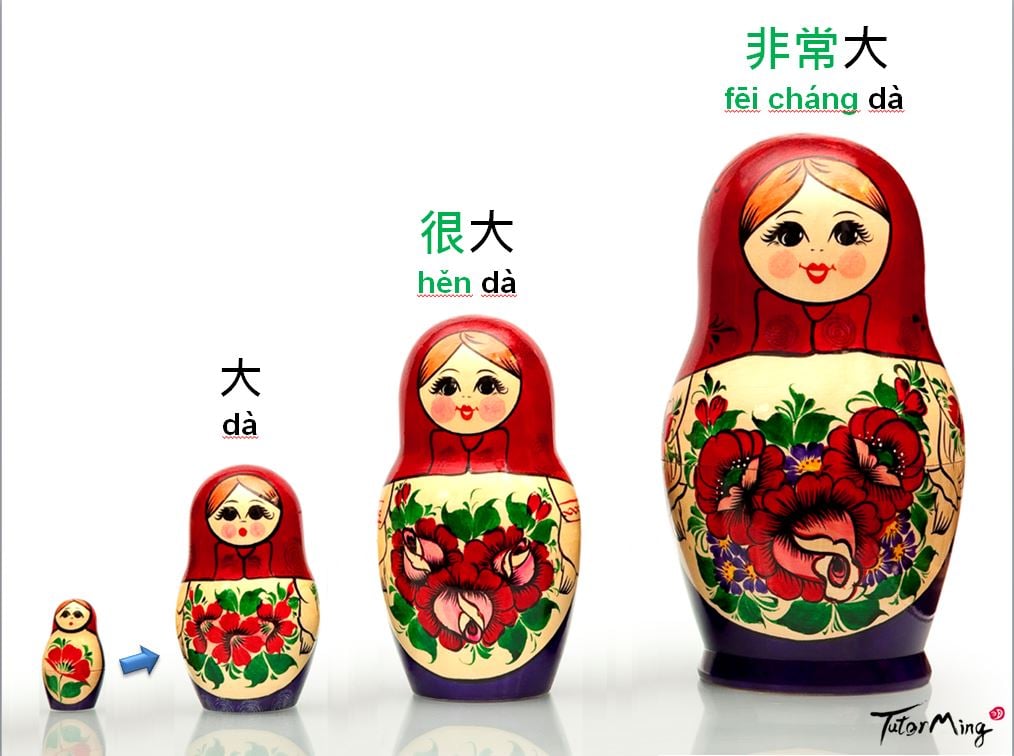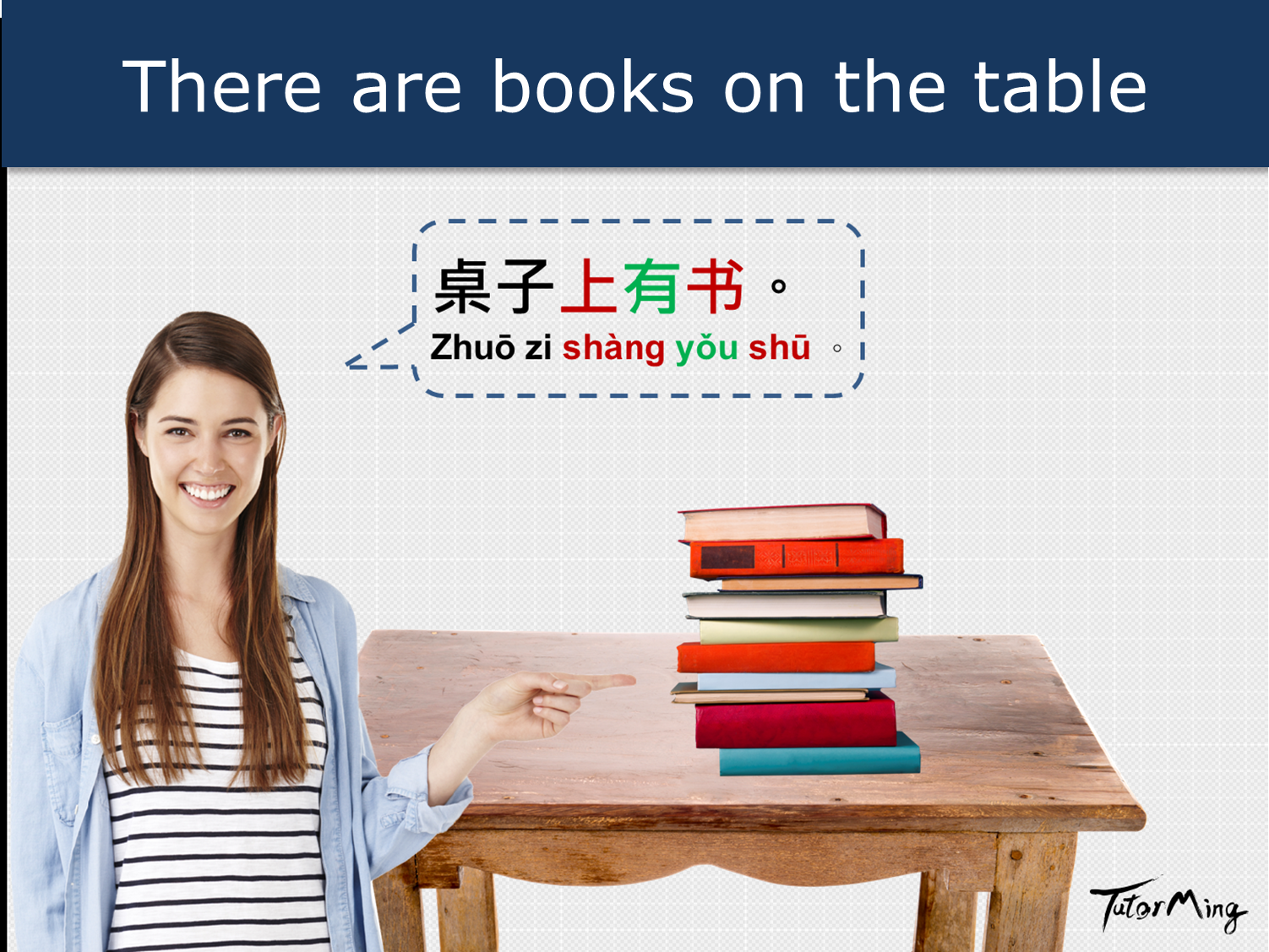In terms of verbs, Mandarin Chinese is way easier than English. There are no conjugations or no tenses. However, some verbs are not used the same way we use it when speaking English or other foreign languages.
In this article, we’ll see the different ways of using “to be” in Chinese
To Be In Chinese:
1) Use 是 (shì) to connect two nouns
是 (shì) is one of the most common verb in Mandarin Chinese and is used like “be” to connect two nouns together:
- 我是西班牙人 (Wǒ shì xībānyá rén) / I am Spanish
- 她的朋友不是医生 (Tā de péngyǒu bù shì yīshēng) / Her friend isn’t a doctor (Her – friend – negative particle + to be - doctor)
- 这是你的汽车吗?(Zhè shì nǐ de qìchē ma?) / Is this your car? (This – is – your car – interrogative particle)
- 那是电视 (Nà shì diànshì) / That is a television
- 茄子是一种蔬菜 (Qiézi shì yīzhǒng shūcài) / Eggplants are a king of vegetables
2) Use 很(Hěn) to connect a noun and an adjective
很Hěn an adverb that means “very”. However, when placed between a noun and an adjective, it has the equivalent of the verb “to be”:
- 小明很聪明 (Xiǎomíng hěn cōngmíng) / Xiaoming is smart
- 意大利很漂亮 (Yìdàlì hěn piàoliang) / Italy is beautiful
You can replace 很 by another adverb of degree to emphasize:
- 这部电影非常好看(Zhè bù diànyǐng fēicháng hǎokàn) / This movie is very good
- 我的女儿有一点累 (Wǒ de nǚ'ér yǒu yīdiǎn lèi) / My daughter is a little bit tired
Note: Do NOT use 是 between a noun and an adjective. (Instead of saying “我是高兴” (I am happy), say “我很高兴” (Wǒ hěn gāoxìng).

3) Use 在 (Zài) to connect a noun and a prepositional phrase
Subject + 在 + location (+preposition)
- 我姐姐在法国念书 (Wǒ de jiějiě zài fàguó niànshū) / My sister studies in France
- 猫咪在厨房里 (Māomī zài chúfáng lǐ) / The kitten is in the kitchen
4) Also use 在 to translate the “Verb + ing” pattern
- 妈妈在做饭 (Māmā zài zuò fàn) – Mom is cooking
- 我在做作业 (Wǒ zài zuò zuo yè) – I am doing my homework
5) Use 有 (Yǒu) to say “there is / there are”
- 我的房子里有三间房间 (Wǒ de fángzi li yǒu sān jiān fángjiān) / There are three rooms in my apartment
- 有饼干在桌子上 (Yǒu bǐnggān zài zhuōzi shàng) / There are biscuits on the table

6) Do not use any verb when telling your or someone else’s age
- 我二十五岁 (Wǒ èrshíwǔ suì) / I am 25 years old
- 她的男朋友三十一岁 (Tā de nán péngyǒu sānshíyī suì) / Her boyfriend is 31 years old
>Learn more about Chinese verbs
**Use “be” in the past or the future
In Chinese, you don’t need to change the verb to indicate a past or future event. You can simply use time words that will indicate when the event happened/will happen:
昨天是星期一 (Zuótiān shì xīngqí yī) / Yesterday was Monday
下个月是圣诞节 (Xià gè yuè shì shèngdànjié) / Next month is Christmas
It may seem complicated at the beginning, but believe me, it becomes easier very quickly!
Don’t forget to practice Chinese every day to memorize these different ways of using “to be”, and if you want to improve your Chinese skills really quickly, try one of our free online classes with our certified Chinese teachers. We provide customized classes for students of all ages and help them improved their reading, speaking, and listening skills as well as preparing official Chinese language exams
>Learn more about Chinese grammar
If you need support to prepare any Chinese exams or if you are simply interested in learning/improving your Chinese, try one of our free online Chinese demo class by clicking on the link below.
Want To Learn Chinese? Join us to learn more!
